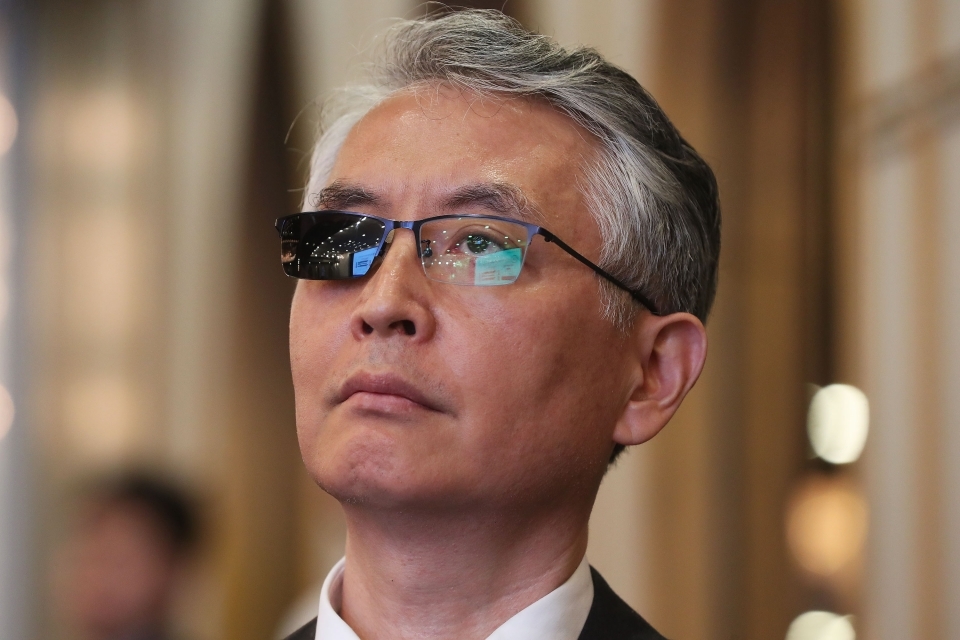SillaJen will sturdy rickety investor sentiments with more data as soon as ready, the company told The Korea Herald on Friday, while maintaining that currently it can only offer to say the company has unfazed faith in the efficacy of Pexa-Vec.
SillaJen will follow through with the plan to establish a new research and development center in Pangyo, Gyeonggi Province, which will open in September.
SillaJen, a viral Korean biotech company whose market value came reached 10 trillion won ($8.3 billion) last year, saw its market cap collapse below 1 trillion won over the four days since Aug. 2, when it was recommended by the US’ independent Data Monitoring Committee to cease the phase 3 clinical trial of Pexa-Vec for liver cancer treatment due to futility.
 |
SillaJen CEO Moon Eun-sang (Yonhap) |
Pexa-Vec is SillaJen’s oncolytic virus that is designed to selectively target and destroy cancer cells through three different mechanisms of action: selectively destroying cancer cells through the direct breakdown of cancer cells through viral replication, reducing the blood supply to tumors through vascular disruption and stimulating the body’s immune response against cancer cells. In theory, Pexa-Vec can be paired with various cancer treatments to yield faster and more accurate results for cancer patients.
With this singular but chameleon-like ammunition, SillaJen made a viral initial public offering at end-2016. In about a year, around end-2017, SillaJen’s market cap had catapulted to 10 trillion won.
There had been persisting concern among analysts on Pexa-Vec being the only technology propping up SillaJen.
That concern manifested upon the IMDC’s recommendation to cease the phase 3 clinical trial for Pexa-Vec paired with liver cancer treatment Nexavar.
At a Monday briefing attended by analysts and journalists, SillaJen’s Chief Medical Officer Kwon Hyuk-chan said that there had been much “noise” in the ceased clinical trial. Patients who participated in the trial had received rescue therapies that could have interfered with a clear decipher of Pexa-Vec’s efficacy, according to Kwon.
Kwon added, “At this point, we cautiously offer that we do not believe that Pexa-Vec is not effective.”
SillaJen’s CEO Moon Eun-sang on Tuesday purchased 129,000 stocks worth 2 billion won to infuse funds into the company. On Wednesday, on the back of lifting stock market sentiments, he additionally purchased 100,000 stocks worth 1.6 billion won. Moon said he would seek to make further stock purchases to aid SillaJen’s funding.
All the while, South Korean lawmaker Lee Un-ju on Wednesday wrote via her public Facebook account to call for an institutional investigation of SillaJen to determine if Pexa-Vec was a deliberate scam.
SillaJen’s European partner Transgene, who is also developing Pexa-Vec for liver cancer paired with Opdivo, notified its investors of the latest development, shouldering some of the damage itself.
Transgene has exclusive rights to develop and commercialize Pexa-Vec for the treatment of solid tumors in Europe while SillaJen has the rights for Pexa-Vec for the North American market, Hong Kong and China.
By Lim Jeong-yeo (
kaylalim@heraldcorp.com)








